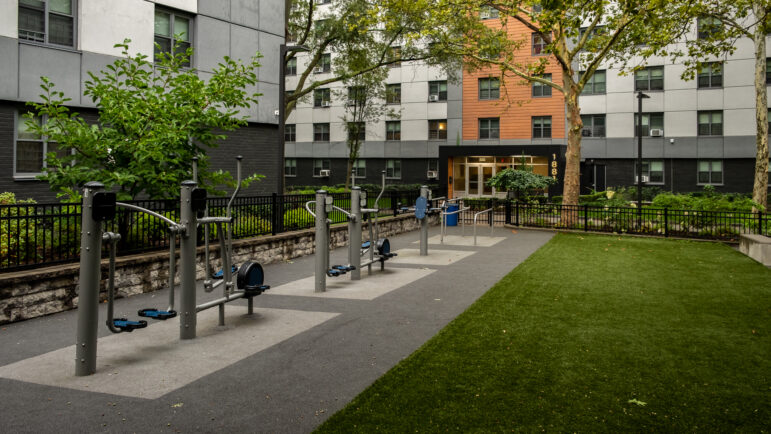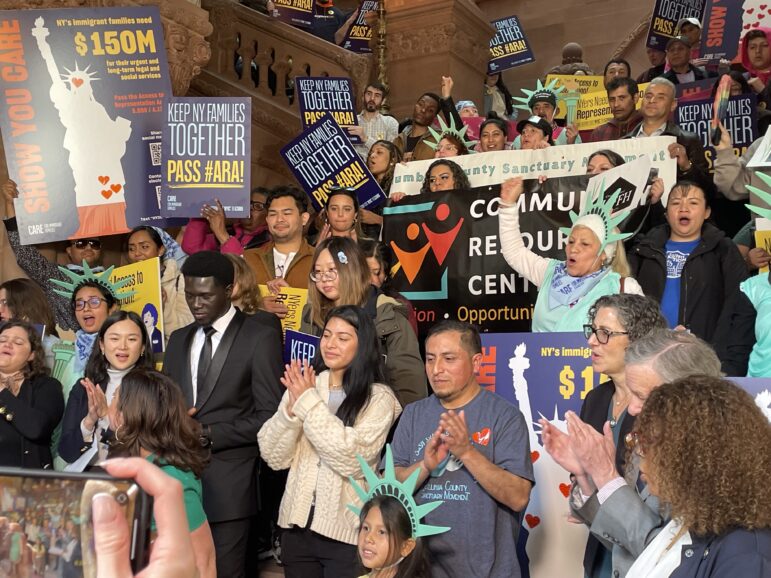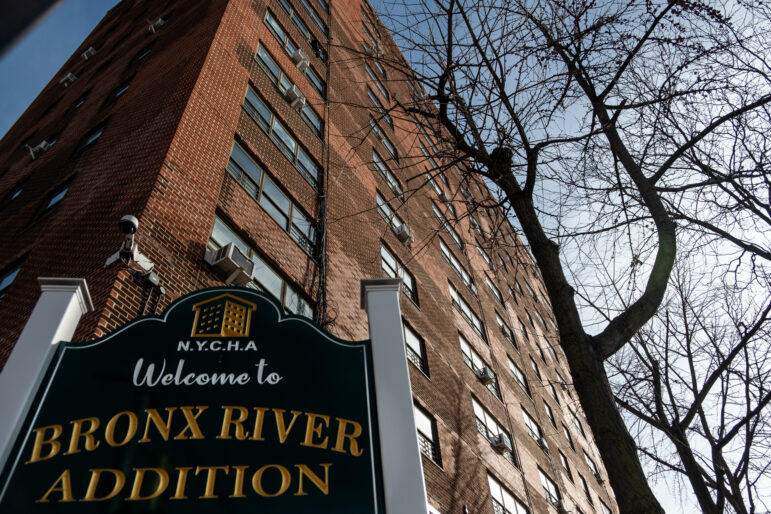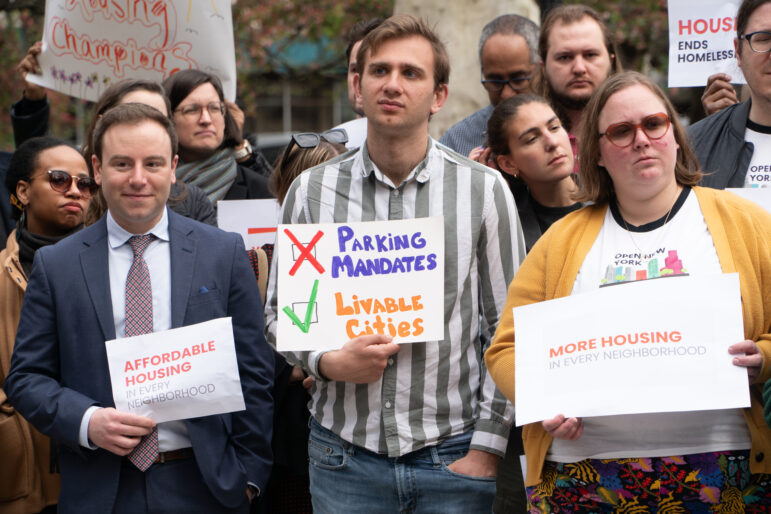In the Bronx, where shopping opportunities are few and far between, residents are hoping for bargains once construction on the New Horizons shopping center is finished. But shoppers at the Crotona Park East mall may find their cash in short supply in at least one store, where a $500 couch could run them upwards of $2,000.
Mid-Bronx Desperadoes, a neighborhood housing group, and the Local Initiatives Support Corporation, the national community development funding organization, joined forces to build the $30 million mall. Slated to open early next year, New Horizons is supposed to bring high-paying jobs and shopping opportunities to a neighborhood with high unemployment. But recently, both groups signed an agreement to bring in Rent-A-Center, a national chain of rent-to-own stores with a record of overcharging poor consumers.
“Community development by nonprofits should have some standards,” says Matthew Lee of Inner City Press, the Bronx watchdog which first criticized the agreement. “This is a company well known for ripping off the poor.”
Rent-A-Center tempts buyers without much cash to burn, offering immediate ownership of high-cost items like furniture and electronic appliances. No down payment, no credit checks: For a weekly fee over an extended period–usually one or two years–the TV or sofa is yours. But there is a catch: Customers often end up paying three or four times the retail price.
“Rent-A-Center engages in a scheme designed to defraud the consumer,” said Leah Beth Guggenheimer, an attorney representing several dozen Bronx residents in a class action suit against the chain. By inflating the base price of their products, says Guggenheimer, the company violates a New York state law forbidding rent-to-own businesses from charging customers more than twice the item’s retail price.
The company refused to comment on the pending lawsuit, but Rent-A-Center president Mitch Fadel argued that it breaks no laws because consumers can back out of their agreements at any time. “It’s a misunderstood transaction,” he said. “It’s not about fraud. It’s about options.”
The courts haven’t agreed. Over the last five years, Rent-A-Center has run up a tab of at least $80 million in legal settlements, including a $16 million payment to 20,000 Wisconsin customers who successfully argued the company had hidden interest rates.
But litigation hasn’t seemed to hurt their bottom line: Rent-A-Centers are sprouting across the city, with 25 in currently in operation. That made it an attractive business for the mall’s investors, the Bank of New York and EAB, which urged MDB and LISC to include national chains with solid bottom lines.
“We were caught between a rock and a hard place,” said MBD Development Director Colette Gill. “We tried to pick tenants that satisfied funders and banks, but also satisfied what’s been a void of services in the community.” MBD did consider the social impact of each store it signed leases with, said Gill. Such concerns led them to reject a proposed liquor store–but not Rent-A-Center, which has eight stores in the borough already.
LISC’s concerns were narrower. “Our main criterion is that they’re capable of paying the rent,” said LISC program officer Rhonda Lewis.
They certainly are. The rent-to-own industry has been flourishing. “They target neighborhoods where people have bad credit and unstable income,” said Guggenheimer. “It’s very lucrative.”








